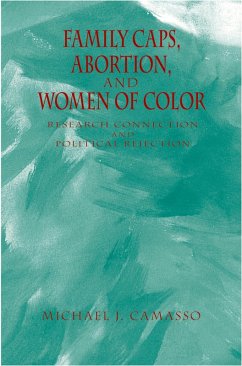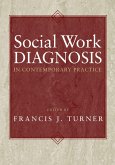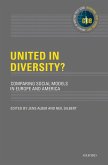Fifteen years ago, New Jersey became the first of over twenty states to introduce the family cap, a welfare reform policy that reduces or eliminates cash benefits for unmarried women on public assistance who become pregnant. The caps have lowered extra-marital birth rates, as intended but as Michael J. Camasso shows convincingly in this provocative book, they did so in a manner that few of the policys architects are willing to acknowledge publicly, namely by increasing the abortion rate disproportionately among black and Hispanic women. In
Family Caps, Abortion, and Women of Color, Camasso (who headed up the evaluation of the nations first cap) presents the caps history from inception through implementation to his investigation and the dramatic attempts to squelch his unpleasant findings. The book is filled with devastatingly clear-cut evidence and hard-nosed data analyses, yet Camasso also pays close attention to the reactions his findings provoked in policymakers, both conservative and liberal, who were unprepared for the effects of their crude social engineering and did not want their success scrutinized too closely. Camasso argues that absent any successful rehabilitation or marriage strategies, abortion provides a viable third way for policymakers to help black and Hispanic women accumulate the social and human capital they need to escape welfare, while simultaneously appealing to liberals passion for reproductive freedom and the neoconservatives sense of social pragmatism. Camasso's conclusions will please no one along the political spectrum, making it all the more essential for them to be studied widely. A classic example of what can happen to research and the researcher when research findings become misaligned with political goals and strategies,
Family Caps, Abortion and Women of Color is sure to foment a contentious but vital discussion among all who read it.
Dieser Download kann aus rechtlichen Gründen nur mit Rechnungsadresse in A, B, BG, CY, CZ, D, DK, EW, E, FIN, F, GR, HR, H, IRL, I, LT, L, LR, M, NL, PL, P, R, S, SLO, SK ausgeliefert werden.









